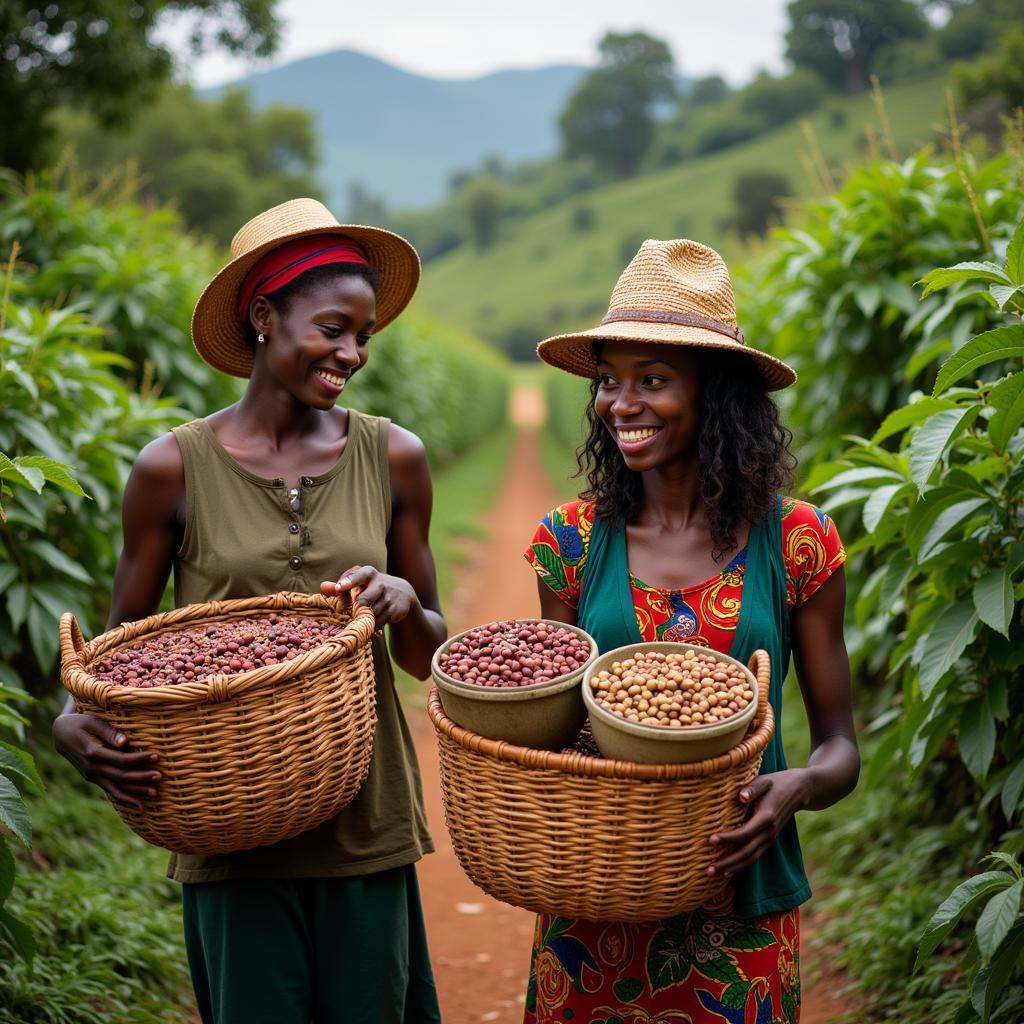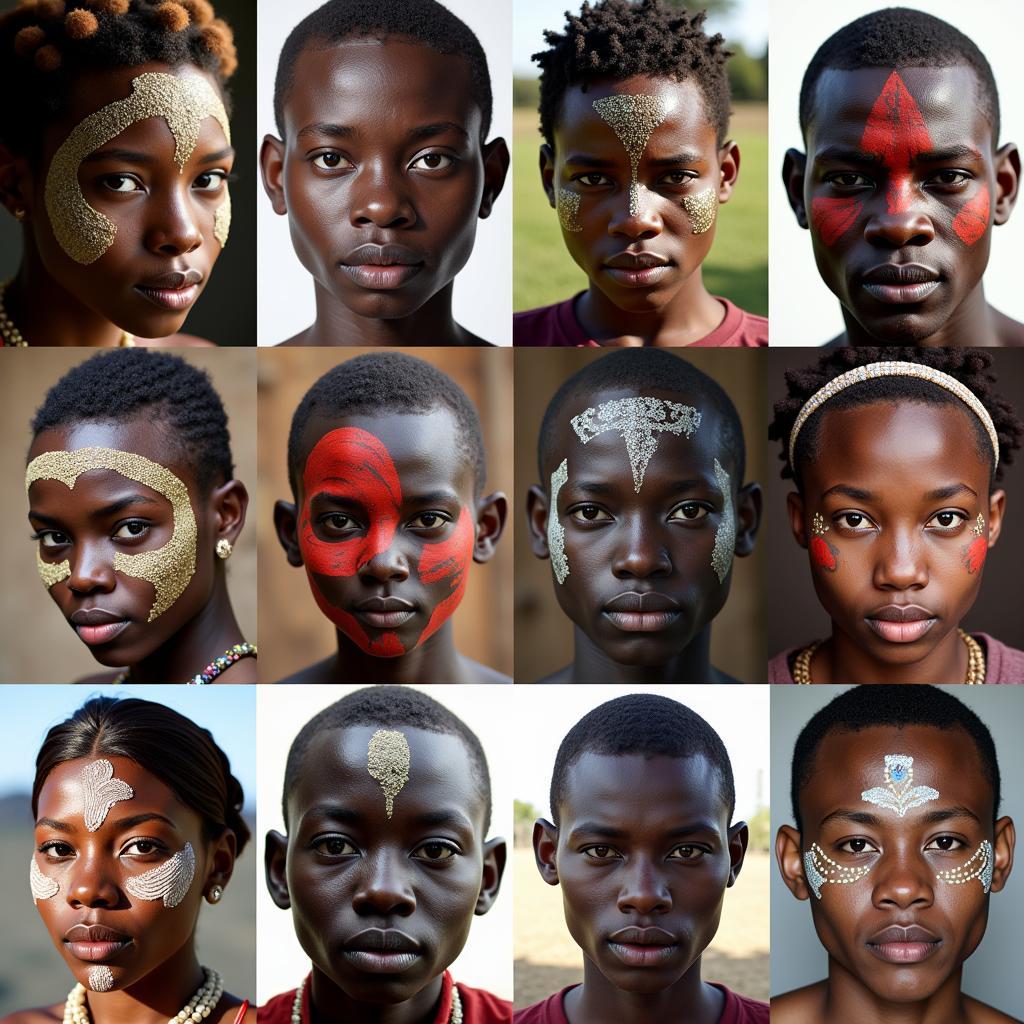African Headcover for Men: A Symbol of Culture and Identity
African Headcover For Men holds deep cultural significance, reflecting a rich tapestry of traditions, beliefs, and social status across the continent. From the majestic turbans of North Africa to the intricately woven caps of West Africa, these head coverings are more than just fashion accessories; they are powerful symbols of identity, spirituality, and belonging.
Exploring the Diverse World of African Headcovers
The variety of African headcovers for men is truly astonishing. Each region and ethnic group boasts its unique styles and materials, reflecting the diverse landscapes and cultural heritage of the continent. Let’s delve into some of the most prominent examples:
The Kufi: A Symbol of West African Heritage
The kufi, also known as a “fura,” is a brimless, short, rounded cap worn by men throughout West Africa. Often embroidered with intricate designs or made from vibrant fabrics like kente cloth, the kufi represents a strong connection to cultural heritage. Its versatility allows it to be worn for everyday occasions as well as for formal events like weddings and religious ceremonies.
The Tagelmust: A Veil of the Tuareg People
In the Sahara Desert, the Tuareg people are known for their distinctive indigo-dyed tagelmust. This long, flowing veil covers the head and face, protecting against the harsh desert elements. More than just practical wear, the tagelmust is a symbol of Tuareg identity and social status. The way it is wrapped and the depth of its indigo hue can convey a man’s age, clan, and social standing.
The Chechia: North African Elegance
The chechia, a small, flat, brimless red cap, is a common sight in North Africa, particularly in countries like Morocco, Tunisia, and Algeria. Often adorned with a tassel, the chechia is a symbol of cultural pride and is worn for both everyday occasions and special events. This simple yet elegant headcover has a long history, dating back centuries.
Other Notable African Headcovers
Beyond these well-known examples, countless other headcovers adorn the heads of African men. From the embroidered skullcaps of East Africa to the woven hats of Southern Africa, each region boasts its unique styles and traditions. These headcovers are often made from locally sourced materials like straw, raffia, and animal hides, showcasing the ingenuity and resourcefulness of African artisans.
The Significance of African Headcovers for Men
Why are these headcovers so important? They represent much more than just protection from the sun or elements. They are deeply intertwined with:
- Cultural Identity: Headcovers often signify a person’s ethnic group, region, or tribe.
- Religious Beliefs: Certain headcovers are worn during religious ceremonies or as a display of faith.
- Social Status: The type of headcover, its material, and ornamentation can indicate a person’s social standing or profession.
- Fashion and Style: African headcovers are also fashionable accessories, allowing men to express their personal style and creativity.
Preserving Tradition in the Modern Era
In today’s world, African headcovers continue to be worn with pride, representing a strong connection to cultural heritage. While some younger generations may opt for more contemporary styles, many continue to embrace these traditional head coverings, ensuring that these rich traditions are passed down to future generations.
Conclusion
African headcover for men is a powerful symbol of cultural identity, tradition, and belonging. From the deserts of the north to the savannas of the south, these diverse head coverings tell stories of rich heritage, resilience, and pride. Exploring the world of African headcovers allows us to appreciate the beauty and complexity of African culture.
FAQs about African Headcovers for Men
- What is the most common African headcover? The kufi is one of the most widely recognized African headcovers.
- What is a tagelmust made of? A tagelmust is traditionally made of cotton and dyed with indigo.
- Where is the chechia worn? The chechia is primarily worn in North Africa.
- What do African headcovers symbolize? They symbolize cultural identity, religious beliefs, social status, and fashion.
- Are African headcovers still worn today? Yes, they are still worn with pride by many African men.
For any assistance, please contact us at Phone Number: +255768904061, Email: kaka.mag@gmail.com, or visit us at Mbarali DC Mawindi, Kangaga, Tanzania. We have a 24/7 customer service team.



